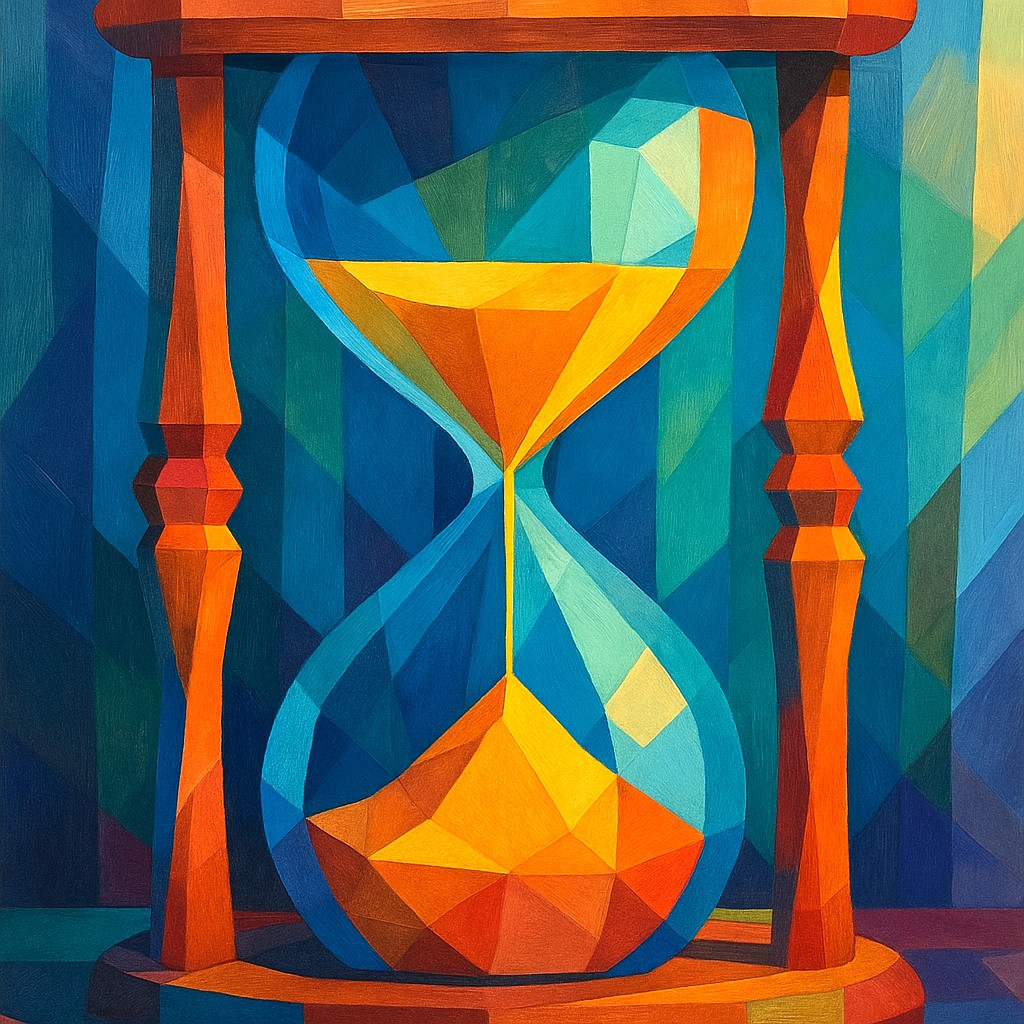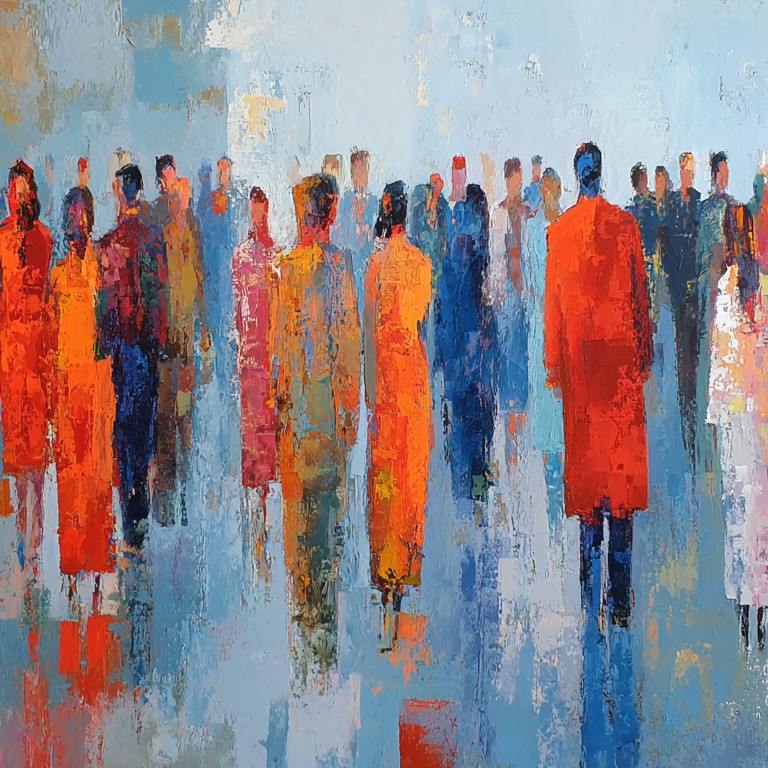The Future Panel - what do people think of Norway's wealth?
Sixty-six randomly selected Norwegians will discuss how Norway's wealth can be used for the good of current and future generations.

Ki-generated illustration from Midjourney
Main moments
Norway is a rich country. In a world of serious challenges. The Future Panel is a national public panel that gathers a sample of the population from all over the country — with different age groups, political standpoints and backgrounds. The panel will meet seven times over four months to gain knowledge from experts, discuss relevant topics and finally make recommendations on what Norway can do. These will be presented to policy makers and shared openly.
On November 13, it will be sent out SMS invitations to 40,000 citizens, and of those who say yes, a lottery will determine which 66 participants will be part of the panel. Participants are drawn based on five criteria: age, gender, place of residence, education and an attitude question. This is how it is ensured that the members of the panel mirror the diversity of our country.
The question, to which the Future Panel will answer, is set by seven civil society organisations; Save the Children, Church Emergency Aid, Landsråd for Norway's children's and youth organisations LNU, Caritas, WWF World Nature Fund, Long Term - the Think Tank for Long-Term Policy, and The Future in Our Hands. Never before have so many organizations joined together on a public panel, it is unique worldwide.
- With the Future Panel, we want to start a national conversation about how Norway can contribute to a better future for both current and future generations in the face of the world's common challenges. We hope politicians across party lines will listen to the recommendations of the panel,” says Eirik Mofoss, general manager of the think tank Long Term.
Norway has a strong democratic tradition, but research shows that many groups, including young people, are often excluded from decision-making.
- The Future Panel will place extra emphasis on young people's participation and engagement. Young people have a unique competence in being young, which is absolutely necessary when questions about the future are to be discussed,” says Jakob Øvensen Aanderaa, Chairman of the Board of the National Council of Norwegian Children's and Youth Organizations (LNU).
A community council of famous personalities Kristin Halvorsen, Knut N Kjær, Sally Kamara, Leo Ajkic, Yohan Shanmugaratnam and Else Kåss Furuseth support the process and represent different perspectives and interests related to the topic of the panel. They have an advisory role with no obligations to the panel's recommendations. The council will assist along the way in the work of the panel and ensure that the process is transparent and balanced.
- I strongly believe that ordinary people can make good judgments if they are given knowledge of complex societal challenges in a simple way, and given the space and time to talk well together. That's my motivation for being involved in this national people's panel,” says Leo Ajkic, a member of the community council
The project is funded by several national and international partners, including the European Climate Foundation, Sunrise Project, Ragnhild and Jens Ulltveit-Moe and Stiftelsen Værekraft.
The Future Panel Follows OECD Principles for people panels, and the process is designed to ensure broad legitimacy and a balanced, independent dialogue.
A secretariat, led by the non-profit company SoCentral with the support of We Do Democracy, is in charge of organizing the entire process, from the recruitment of participants to facilitating the meetings. They ensure that the panel has access to neutral and relevant information, so that participants can make good and well-informed choices. They are also responsible for ensuring that the process is conducted independently and impartially and that there is an arm's length between the principals and the participants of the panel.
The same organizations are also the secretariat of National People's Panel on Sustainable Consumption as ordered by the government. The same organizations are also the secretariat of the National People's Panel on Sustainable Consumption commissioned by the government.
Timeline:
- October 2024: Public launch of the Future Panel
- Novembre 2024: Invitations are sent to 40,000 residents
- December 2024: Selection of 66 participants
- January-April 2025: The Seven Collections of the People's Panel
- May 2025: Conference with the launch of the recommendations
- May-September 2025: Work with the recommendations of the panel
Fact: What is a People's Panel?
A People's Panel is an internationally recognized and research-based method of involvement recommended by THE OECD. Ireland, Scotland, Belgium, Germany, Austria and the Netherlands are among the countries that have utilized such panels. In Norway, the government launched the first National People's Panel in October, on sustainable consumption and more municipalities have used folk panels. Last year, the City of Copenhagen established a permanent climate panel.
In a popular panel, new voices are engaged to discuss difficult challenges facing society. Residents will have the opportunity to meet professionals, learn about the topic, discuss with other residents and discuss dilemmas. It helps to draw people more into issues that have implications for their own everyday lives.
People panel is a method of involvement characterized by three points in particular:
- Members are randomly selected and are demographically representative of an area, city, or country. This differs from electoral processes through political parties.
- The members gain in-depth knowledge of the topic, presented from various academic communities.
- The process runs over time and is facilitated so that members discuss with others who have different views than them, before agreeing on the recommendations they land on.
For more information, contact: Thomas Berman
E-mail: thomas.berman@framtidspanelet.no
Phone: +47 907 87 982
More from Langsikt

Input to the strategy for Norway's cooperation with the World Bank
Norway should see its cooperation with the World Bank, particularly IDA, as more than an aid tool - it should be part of our long-term strategy to contribute to a stable and resilient world with less inequality and less poverty. Here are nine inputs on how.

Norwegian aid can accomplish much more if it is prioritized correctly. Here are suggestions on how
Below are two proposals for structural measures in the aid budget, and then two concrete budget amendments that can save free up room for action for new initiatives (a total of NOK 1 billion in 2026).

Input to Development Minister in Light of Global Aid Cuts
Global aid cuts must have consequences for Norwegian priorities.

Input to NBIM’s Climate Action Plan: Mitigating climate risk
We encourage NBIM to communicate these risks to policymakers in Norway and abroad and to ‘lead by example’ for other asset owners seeking a roadmap to stay the course on transition amidst unprecedented volatility.